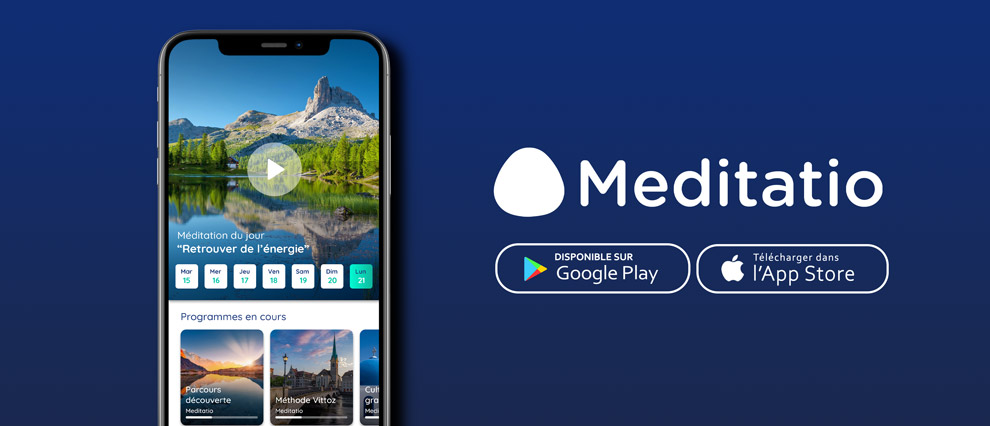What is fasting for Christians?
Fasting is present in many religious traditions; Jews fast on the occasion of Yom Kippur, Muslims on Ramadan, and Christians during the time of Lent. More than just a diet, this period of abstinence and deprivation is an ancestral spiritual practice. The faithful are invited to fast in a spirit of repentance, reparation, supplication, or offering. Although the modalities of Christian fasting have evolved over the centuries, it is still associated with prayer and sharing, and may be done in community or individually. Where does the tradition of fasting come from? Why is it important in the life of a Christian to practice fasting? What are the different types of fasting in Catholicism? When and how should one practice it?
Sommaire
The Christian tradition of fasting
Fasting in the Jewish Tradition
Christian fasting has its roots in the Hebrew tradition. The Jewish people regularly practice times of fasting, in particular for penance or in supplication.
The Old Testament gives us many examples:
“Alarmed, Jehoshaphat resolved to inquire of the Lord, and he proclaimed a fast for all Judah.” (2 Chronicles 20:3)
“When I heard these things, I sat down and wept. For some days I mourned and fasted and prayed before the God of heaven.” (Nahemiah 1:4)
“Even now,” declares the Lord, “return to me with all your heart, with fasting and weeping and mourning.” (Joel 2:12)
Fasting was also practiced by the prophets, such as Moses and Elijah, to prepare for their encounters with God.
Jesus and Fasting
Jesus himself, as part of this tradition, fasted 40 days and 40 nights in the desert just after his baptism. This fast reminds us of those of Moses on Mount Sinai before receiving the tablets of the law and of Elijah before reaching Mount Horeb.
His public life therefore began with this period of withdrawal and of spiritual struggle, since it was there that he faced the temptations of the devil.
“Jesus, full of the Holy Spirit, left the Jordan and was led by the Spirit into the wilderness, where for forty days he was tempted by the devil. He ate nothing during those days, and at the end of them he was hungry.” (Luke 4:1-2)
Far from the 40 days and 40 nights of total fasting, in the New Testament we find the regular practice of partial fasting, associated with prayer, emphasizing the fervor and piety of the believer.
“There was also a prophet, Anna, the daughter of Penuel, of the tribe of Asher. She was very old; she had lived with her husband seven years after her marriage, and then was a widow until she was eighty-four. She never left the temple but worshiped night and day, fasting and praying.” (Luke 2:36-37)
However, Jesus warns against the temptation of a superficial fast, performed as a ritual and not associated with this desire for humility and intimacy with God.
“When you fast, do not look somber as the hypocrites do, for they disfigure their faces to show others they are fasting. Truly I tell you, they have received their reward in full. But when you fast, put oil on your head and wash your face, so that it will not be obvious to others that you are fasting, but only to your Father, who is unseen; and your Father, who sees what is done in secret, will reward you.”
(Matthew 6:16-18)
The Evolution of the Practice of Fasting in the Catholic Church
Over the centuries, practices have changed and the Church's requirements in terms of recommended periods of fasting and abstinence have decreased:
- In terms of duration: the duration of the Eucharistic fast has been greatly reduced (see below) and only two days of Lent are mandatory fasting days (Ash Wednesday and Good Friday)
- In terms of modalities: fasting is not necessarily associated with food alone, but can concern any other habit whose abstinence or partial or total deprivation can be experienced as an offering and an exercise of return to God.
At times, for particular prayer intentions or in favor of peace, the pope may invite the faithful to observe a day of fasting outside of these two specific days of the liturgical calendar.
Fasting in the Bible
Fasting is often mentioned in the Bible. However, they take very different forms depending on the circumstances.
Their durations, their modalities, and the reasons for their fasts are varied.
- 40 days and 40 nights of total fasting in solitude— This is what Moses, Elijah and then Jesus experienced. These periods preceded encounters with God and were done in a supernatural way with the help of the Holy Spirit. Though we do not have such extreme experiences, the 40 days of Lent remind us of these times of introspection and spiritual struggle, important to prepare for the joy of the meeting.
- 21 days of partial fasting to purify oneself. This is what Daniel's fast shows us when he deprives himself of meat and wine for three weeks. This fast of purification helps him to listen to God and to welcome Him better into his life.
- 7 days of fasting This is the time that David observes at the death of his son. A time of prayer and supplication.
- 3 days of fasting This is what Queen Esther asks of the Jewish people and what she herself observes when he is threatened with genocide by a decree. She offered herself totally to God and prepared herself spiritually for his action with the king to try to save his people.
- 1 day of partial fasting to repent In the face of their faults, their sins, the Hebrews show their repentance by living on a day of fasting.
The Different Fasts in the Catholic Religion
The time of penance Lent, Ash Wednesday and Good Friday
For Ash Wednesday, which begins the Lenten period, and Good Friday, which commemorates the 3 days before Easter, the death of Jesus on the cross, the Church recommends a day of fasting and abstinence.
On other Fridays during Lent, Catholics are invited to eat “lean,” that is to say without meat.
“Abstinence from meat, or from some other food as determined by the Episcopal Conference, is to be observed on all Fridays, unless a solemnity should fall on a Friday. Abstinence and fasting are to be observed on Ash Wednesday and Good Friday.” (Canon No. 1251 - Code of Canon Law)
“The fourth precept (“You shall observe the days of fasting and abstinence established by the Church”) ensures the times of ascesis and penance which prepare us for the liturgical feasts and help us acquire mastery over our instincts and freedom of heart.” (Catechism of the Catholic Church No. 2043)
The rest of the Lenten period, fasting can be done more freely. You do not necessarily have to refrain from food, and can try another type of deprivation or abstinence. It is above all about living out this period in humility, prayer and sharing and seeking to get closer to God by returning to the essentials.
Eucharistic fasting
Until the nineteenth century, the Church asked the faithful to fast before receiving Communion, which was to begin the day before at midnight, which is still the case in the Orthodox Church. Today, the Catholic Church asks you not to eat anything an hour before receiving the Eucharist.
Personal fasting
Everyone can also offer a time of fasting and penance to God. It is an exercise in conversion to get closer to God. Whether you decide to do without a meal, to abstain from meat, alcohol, cigarettes, or sweets for a day, or to limit certain consumption (food or other: social networks, TV series, pornography ...), it is above all about living this out not only in deprivation or effort, but in the desire to get closer to God, to give Him more space in our lives. (Discover all the spiritual benefits around fasting as well as tips for practicing it!)
Live out your fast in prayer with Hozana
Christian fasting must always be done in prayer and sharing. On Hozana, whether during the Lenten period or at any other time of the year, you will find communities of prayer to accompany you on a daily basis, such as with the commented reading of the Gospel of the day
You can also join an online fasting retreat to be accompanied during your fasting and prayer time, or take advantage of this period to discover a real intimacy with God through meditation.

